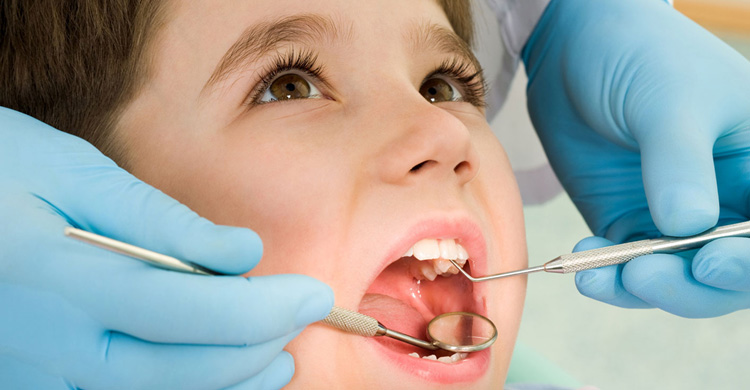
PAEDIATRIC CARE
When it comes to the health of your child's primary teeth, there is no better time than now to start practicing excellent oral hygiene. Pediatric dental care ensures your child's primary teeth stay healthy and free of decay and other dental diseases.
Overview of Good Oral Hygiene for Kids :
Good oral hygiene starts as early as infancy. Whether you're nursing or bottle feeding, you should begin incorporating some kind of dental hygiene regimen as soon as possible. Before any teeth erupt, wipe down the gums with gauze or a soft, wet washcloth. Once teeth begin to come in, keep them clean. Using the right set of tools is essential for this daily ritual.N.B. : It is important to purchase a toothbrush designed specifically for babies, which will have a much smaller head, for their tiny mouths. If you have not done so already, make sure your child has his or her first dental visit by the time he or she turns one to two years of age. Your Paediatric Dentist will keep your child's teeth healthy by removing plaque build-up and food debris that may be stuck in his teeth. This is an important part of dental care because it prevents bacteria from continuing to grow, which may eventually lead to other dental diseases. Make your regular visits to the pediatric dentist a fun adventure that always yields some type of tooth-friendly reward.
Professional Care Tips :
A professional Pediatric Dentist will provide you with expert tips on how to take care of your child's teeth at home. Advice typically includes the proper way to floss and brush your child's teeth and additional information based on the specific condition of your child's teeth.Another important aspect is your child's eating habits and what parents should do to help protect their child's teeth and gums. As a general precaution, parents should stay away from foods rich in sugar and starch. In addition, a child should never go to sleep while nursing or with a juice or milk in their bottle. Your baby's primary teeth are important. Developmental stages that are imperative to your child's future dental health depend on them. Dentistry for children provides parents with a guide for oral care so that they will have excellent dental hygiene as they mature.

GERIATRIC CARE
For most people, aging involves an increasing number of medical appointments. The necessity to consult with a variety of specialists, involving as it does investments of both time and money, may cause some seniors to put dental appointments on the back burner. This is never a good idea. Not only are there some oral and dental problems that crop up as you get older, but your dentist may be your first line of defense for a variety of other medical issues. Going for regular dental check-ups as you age is essential for maintaining overall as well as dental health.
Problems More Common as We Age
Though dental and oral problems can occur at any age, the following issues are more likely to present as we pass through middle age and into our senior years:• Darkened teeth — caused by changes in dentin (it yellows over time), thinning enamel that allows the dentin to show through, and years of consuming stain-causing beverages and foods
• Diminished sense of taste — caused by simple aging, dentures, and certain medications
• Denture-induced stomatitis or thrush –soreness and inflammation of tissue underlying a denture, or on the tongue, caused by a fungus, usually the result of ill-fitting dentures, certain diseases or medications, and/or poor dental hygiene
• Dry mouth — reduced saliva production as a result of medication side effects, diseases like Sjogren’s syndrome, or radiation of the head and neck area
• Gum disease — results from accumulation of plaque, made worse by remaining food particles, smoking, poorly fitted dentures or bridges, poor diet, diseases such as anemia, cancer and diabetes
• Root decay — gum recession due to aging can expose tooth roots which, since they have no enamel to protect them, are more likely to decay than the tooth’s crown
• Tooth loss — most often the result of gum disease
• Uneven jawbone — usually caused by lost teeth that are not replaced, permitting other teeth to move into the remaining open spaces
Problems with the mouth and teeth may be exacerbated by aging in other ways. Seniors may have arthritis in their hands and fingers that make performing oral hygiene tasks more difficult. They may also be prevented from performing what used to be automatic hygiene tasks by forgetfulness or fatigue.
Dental care can be even more important as we age than when we are young, since the dentist may be the first to discover an oral cancer or an oral sign of a systemic disease, like diabetes or heart disease. As you get older, it is essential to keep oral hygiene and regular visits to your dentist a priority.



